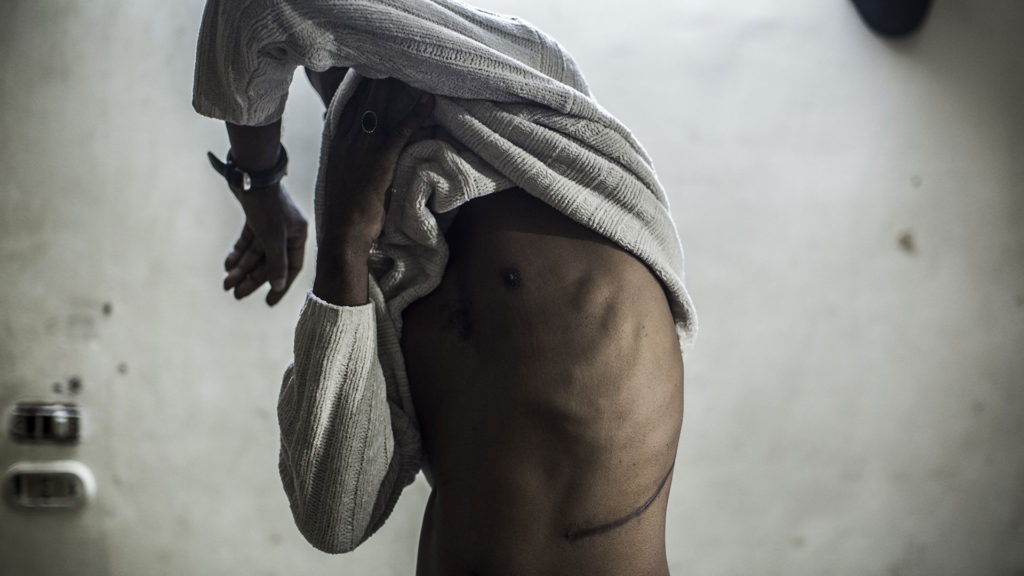Organ trafficking is a worldwide crisis as the demand for organs outstrips the legal supply. In the U.S. alone, thousands of people die every year waiting for an organ transplant; from there, this black market thrives, feeding on despair and exploiting the very value of human life.
In the black market, a healthy heart or lung costs up to $150,000. A kidney or liver might cost only a bit under six figures. The cornea is the cheapest organ with a cost of only $30,000.
Surprisingly, most of the world’s organ-trafficking criminal organizations are run by doctors. Called ‘brokers’, these doctors have turned their backs on the Hippocratic oath to go around convincing people to sell their organs for pennies. In these operations, Doctors perform more butchering than surgery and manage the sales. Speaking of profit, shockingly, Facebook is one of the most active markets for illegal organ trading.
Brokers hide in the shadows, hunting the most vulnerable of prey. “People with money won’t sell their organs, it’s always the poor ones,” said an anonymous broker to Vice. They hunt those in absolute despair when selling an organ seems the only way to get money.
“Nobody willingly sells a kidney in the black market without serious dial reason, just as surely no one is looking to buy unless facing a grim outcome of their own,” Vice reports.
The victims of these crimes are not only the donors who were deprived of their bodies but also the buyers who usually go into serious infections and complications after the illegal and sketchy transplants.
Illegal organ trading is rampant in Egypt: refugees are the main target
Cairo is a hell hole for refugees, where they don’t just lose the sense of safety and stability but the ownership of their bodies. Organ trading gangs in Cairo target refugees because they make the perfect prey; their status in the country makes them extremely vulnerable; their access to the labor market is horridly limited; hence, they live in a vicious circle of poverty and debt. Brokers find it easier to convince them to sell their organs, but 40% of the heinous deals go unpaid, and the brokers are masters in intimidation to keep victims silent.
Some of the victims fall prey to these brokers in a promise for a passage through the Mediterranean sea to Europe, but they usually end up with a missing organ, no money and terrible medical complications that leave them unable to work and complicate the circle of poverty and debt even more.
Refugees in Cairo, unwilling to sell their organs, face the risk of kidnap; in this situation, a kidnapper will use a rag doused with an anesthetic to knock down their victim, leaving them with a horrific scar and a missing organ. A refugee most probably will not report stealing an organ.
Why refugees do not report these heinous crimes?
Because of the unstable accommodation state of refugees in Egypt, they worry about being deported to the countries they fled from if they report these crimes to the Egyptian authorities.
Organ trading is illegal in Egypt since 2010; additionally, it is forbidden in Islam, and since most of the African refugees who fall for these crimes are Muslims, they fear being shamed by their families and the surrounding community.
Hassan, a leading activist in the war against organ trade, stated that one of the main obstacles is the victims’ fear of the criminals. “Everyone is afraid to get involved,” he says. “The organ trade gangs command the streets and terrorize everyone who dares to speak out.”
According to his investigation, along with his teammates, he found a direct channel between Khartoum and Cairo. “The gangs here work through travel agencies,” he stated. “Some of them are in Khartoum, others are here. The Sudanese go to an agency in Khartoum to buy a ticket for a bus to Cairo. The agency then locates medical tourists, people who are going to Cairo for treatment not available in Sudan. All the testimonies show that the agencies send names and descriptions to people in Egypt. The organ traders wait at the Cairo station. They make contact with the travelers they have been informed about, and figure out who has difficulty funding the treatment. They offer money, accommodation and company, and those who go with them wake up with an organ missing.”
Sudanese victims often accuse “Muhammad Kilawi” of trading organs. According to Youssef, a leading activist against the organ trade in Cairo, Kilawi sold his kidney, his two wives’ kidneys and the kidney of his brother-in-law; a testimony to his extreme involvement in the trade.
Kilawi hangs out in the same neighborhood café as Youssef and so many members of the Sudanese community in Cairo. Some of the refugees who are regular at this cafe, prefer to stay away from Kilawi as they are willing to survive in Cairo; however, when a newcomer appears, Kilawi befriends them quickly taking them towards the inevitable. Victims often end up losing an organ or more whether they want it or not, and some even become part of the criminal network.
Egypt’s efforts to eliminate organs trading
In 2018 Egyptian police forces arrested 41 people, following an investigation in a criminal network specialized in illegal organ trading. The investigation focused on private hospitals and health centers, licensed or unlicensed, where transplants and organ harvesting took place, according to statements of the health ministry said at the time. Three of the arrested have been cleared uncharged while the rest were sentenced from seven to 15 years in prison.
This raid was one of many that the Egyptian authorities lead in an attempt to eliminate this heinous crime that is thriving in Egypt on a terrifying scale.



